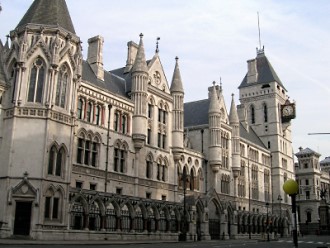Mr Justice Ouseley finds Home Secretary acted irrationally in refusing naturalisation to deter extremism
The High Court last week ruled that a decision by the Home Secretary to refuse citizenship to the wife and children of an Islamist extremist associated with Al-Qa'eda was unlawful.
 Image credit: WikipediaEIN members can read the judgment, MM & GY & TY v Secretary of State for the Home Department [2015] EWHC 3513 (Admin), here.
Image credit: WikipediaEIN members can read the judgment, MM & GY & TY v Secretary of State for the Home Department [2015] EWHC 3513 (Admin), here.
The judgment received considerable media attention, including in the The Times, the Telegraph, the Guardian and BBC News.
BBC News noted that Mr Justice Ouseley found that the Home Secretary's position lacked "internal logic" and she had acted irrationally in refusing the applications.
The Home Secretary had said that it was "important to deter potential extremists from involvement in extremist activities, including by making it clear that any extremist activity could affect the immigration and nationality status of close members."
Mr Justice Ouseley stated: "[T]he purpose of this exercise of the discretionary power is so far removed from the individual, and indeed from the individual's family, that an individual can be refused naturalisation to deter people, whom they need not know or be aware of, from actions over which the applicant has no control. There is real unfairness, on the face of it, in refusing naturalisation to someone who qualifies in all other respects, in order to provide a general deterrent to others, over whom the applicant has no control. Such a use of the discretionary power is so far beyond the range of those which Parliament might have anticipated would be taken into account that Parliament should be taken not to have intended so extensive a discretion. If Parliament had intended such an effect it would have provided for it expressly in view of the essentially individual approach adopted in the Act."
The Guardian noted that the family's barrister, Michael Fordham QC , told a hearing in October that the wife and children were "blameless individuals whose good character is unimpeachable" and were being blamed for the "sins of their father", who was no longer regarded as a threat by the security services.
A Home Office spokeswoman told the Telegraph: "We are disappointed with the court's ruling in this case and we will now consider the options available to us. It would not be appropriate to comment further at this stage."
The Telegraph said the father, Hani al-Sibai, was one of the UK's "most notorious hate preachers".
According to BBC News, the family have lived in the UK since 1994 and have had indefinite leave to remain since 2009.